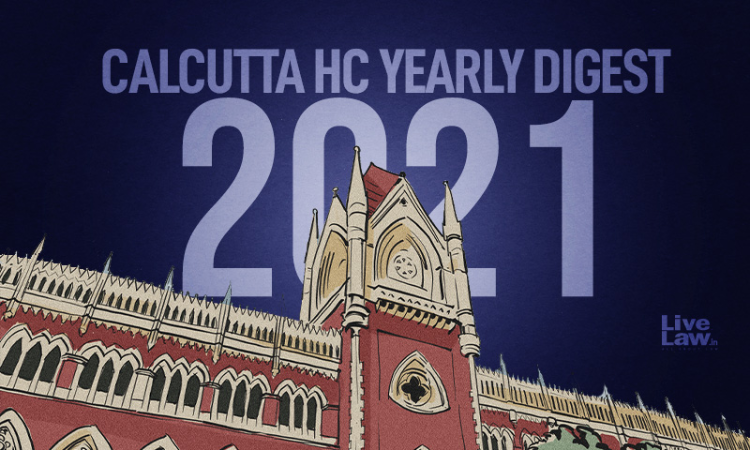- Home
- /
- Top Stories
- /
- Calcutta High Court: Annual Digest...
Calcutta High Court: Annual Digest 2021
Aaratrika Bhaumik
3 Jan 2022 5:06 PM IST
As we step into 2022, LiveLaw brings to you a yearly Round-up of important updates from the Calcutta High Court. This yearly digest includes 182 orders and judgments divided into 21 different subject heads. Criminal Law 1. Section 173(8) CrPC No Bar For Writ Courts To Transfer Investigation To CBI [Jyotsna Roy v. State of West Bengal & Ors]Taking note of the wide gaps in a...
Next Story



